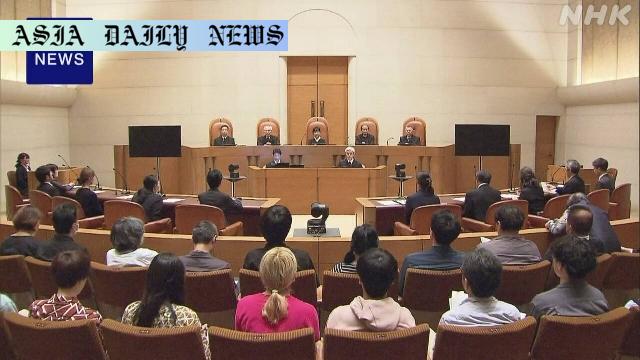COVID subsidies – Japan’s Supreme Court upholds ruling denying pandemic-related subsidies to adult entertainment businesses.
- Supreme Court denies pandemic subsidies to adult entertainment businesses in Japan.
- The ruling states such businesses may impede healthy minor development if not regulated.
- Justice Miyagawa Mitsuko dissents, arguing the exclusion fosters harmful stereotypes.
- Operator asserts the ruling undermines equality and human rights.

Japan’s Supreme Court Ruling on COVID Subsidies
The Supreme Court of Japan has delivered a landmark decision regarding the allocation of COVID-19 subsidies for enterprises affected by the pandemic. The highest court in the country upheld lower court decisions, ruling that denying these subsidies to adult entertainment businesses is not unconstitutional. This judgment has ignited significant public discourse and debate, especially concerning the principles of equality and occupational rights under the Constitution.
Legal Context and Implications
The case revolves around the exclusion of adult entertainment establishments from receiving state aid given to other businesses during the pandemic. The operator of an outcall escort service appealed on the grounds that this exclusion amounted to occupational discrimination, violating the Constitutional guarantee of equality under the law. However, both district and high courts had previously ruled against this claim, and now the Supreme Court has echoed their judgment. By stating that the nature of non-store-based adult entertainment businesses necessitates added regulation to prevent impeding the healthy development of minors, the court solidified its stance that denying financial aid in this instance is legally justified. However, the dissenting opinion from Justice Miyagawa Mitsuko adds nuance to the case, suggesting the potential for harmful stereotypes to emerge.
Societal and Industry Reactions
The court’s ruling has provoked a spectrum of reactions from various stakeholders. The operator who filed the appeal labeled the ruling as disappointing, emphasizing the broader negative implications for the sex industry. While acknowledging the dissenting opinion as a minor solace, the operator underscored the perceived failure of the justice system to uphold universal human rights for all professions. On the other end of the spectrum, proponents of the ruling argue that prioritizing public funds for industries less likely to intersect with societal sensitivities is a pragmatic choice in times of crisis. This decision highlights a lingering tension in Japanese society between public policy, morality, and economic fairness.
Dissenting Opinion: A Voice of Opposition
Justice Miyagawa Mitsuko offered a powerful dissenting opinion, challenging the majority ruling. She expressed concern that such exclusions could foster a public perception of workers in adult entertainment being socially inferior. Her argument raises critical questions about the role of the judiciary in shaping societal norms and breaking down stereotypes. While her dissent may not have legal standing, it introduces a necessary dialogue about discrimination and equality within economically marginalized sectors.
Broader Implications
This ruling sheds light on broader societal challenges, particularly the stigma attached to adult entertainment businesses. It raises a question of whether public policies inadvertently reinforce existing stereotypes rather than mitigate them. The absence of subsidies for this sector may be seen as a reflection of societal biases rather than just a policy decision. The case also underscores the importance of robust legal and societal frameworks that respect the dignity and contributions of all professions while ensuring that public funds are allocated effectively.
Conclusion
As Japan grapples with the ripple effects of the COVID-19 crisis, decisions like this one force a reexamination of the balance between fiscal priorities, societal expectations, and constitutional rights. While the Supreme Court’s ruling will likely have an enduring impact on the adult entertainment industry, it also prompts further discussions about fairness and inclusivity in governmental policies.



Commentary
Analysis of the Supreme Court’s Decision
The Supreme Court’s decision to deny COVID-19 subsidies to adult entertainment businesses has sparked widespread debate. While the ruling adheres to specific legal interpretations, it also raises critical questions about equality, social justice, and occupational discrimination. The exclusion of such businesses from state subsidies implies a judgment about their societal value, which could inadvertently deepen stigmas surrounding the industry. As society progresses, such hardline stances may warrant reconsideration, particularly when they clash with principles of fairness and inclusivity.
Challenges Faced by the Adult Entertainment Industry
Businesses within the adult entertainment sector operate under layers of social stigma and regulatory scrutiny. The COVID-19 pandemic exacerbated these challenges, leaving many without adequate financial support. While other industries were eligible for subsidies to alleviate the economic disruption caused by the pandemic, the exclusion of adult entertainment businesses underscores a moral judgment rather than a pragmatic policy decision. Such exclusion not only impacts the businesses but also affects the lives of the workers who rely on them for their livelihood. Justice Miyagawa Mitsuko’s dissenting opinion provides a refreshing counterpoint, reminding us that policy decisions should not inadvertently perpetuate discrimination.
The Importance of Equality and Inclusivity in Policy
Justice systems play a crucial role in shaping societal values through their interpretations of the law. By enforcing policy decisions that exclude specific industries under the guise of morality, there is a potential risk of perpetuating existing inequalities. This ruling serves as a reminder of the ongoing need for policymakers and judiciary systems to strike a balance between safeguarding societal welfare and upholding equality for all professions, regardless of societal perceptions.
Path Forward
Moving forward, it is imperative that nations adopt more inclusive policies that do not disproportionately marginalize certain professions. While the underlying concerns of public welfare are valid, denying financial support to specific sectors based on moral judgments sets a dangerous precedent. A fairer approach would involve creating policies that both respect the contributions of all industries and uphold the principles enshrined in the Constitution. The dissent expressed in this case will hopefully fuel ongoing discourse, shining a light on the often-overlooked individuals and businesses that contribute to the broader fabric of a nation’s economy.